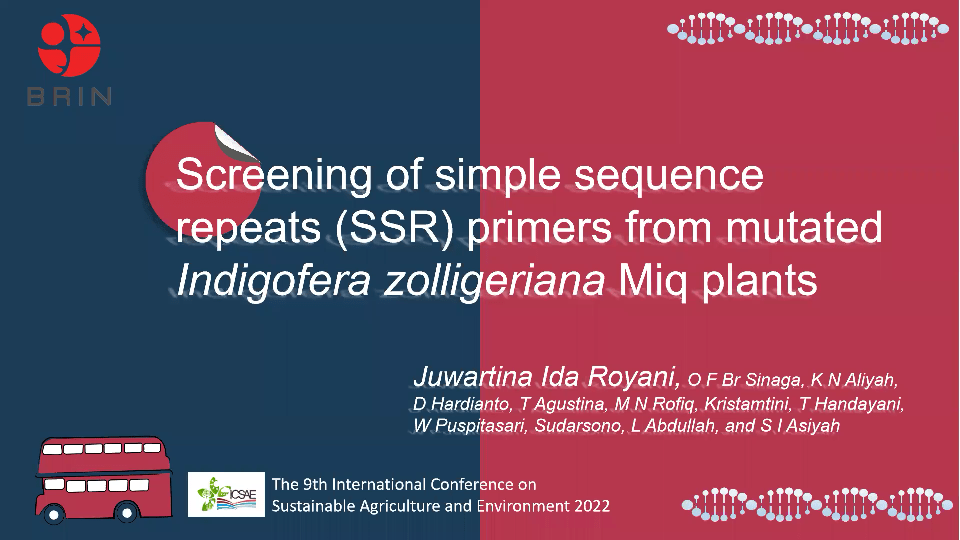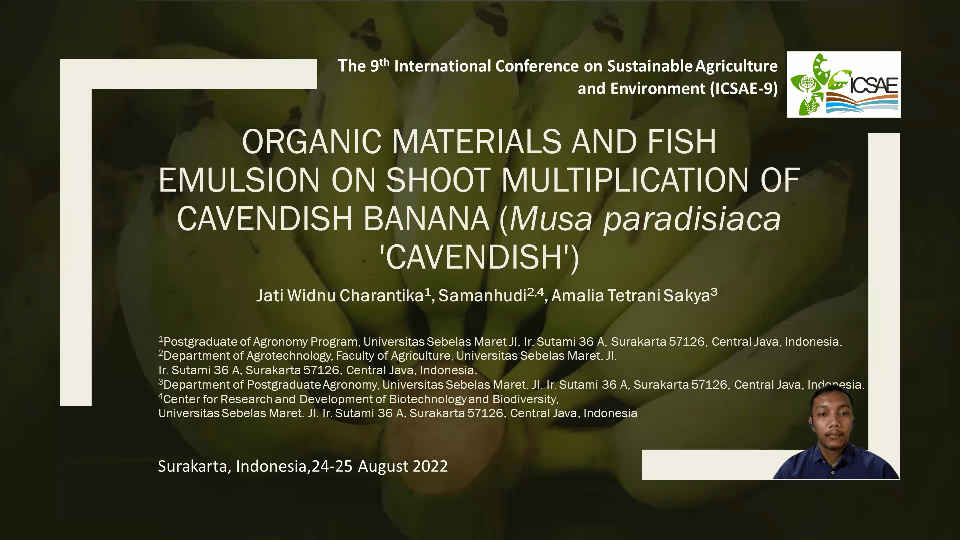Home » Room Video 1 » ID37 Co-compost Biochar as a Soil Ameliorant
Paper ID: 37
Co-compost Biochar as a Soil Ameliorant for Improving Soil Chemical Properties and Maize Yield in Acidic Upland East Lampung
NL Nurida1 and Jubaedah1
1 Indonesian Soil Research Institute, Indonesia
Email: lelanurida@yahoo.com
The addition of co-compost biochar could increase the effectiveness of ameliorant compared to biochar and manure. The field study at Taman Bogo Research Station was conducted for two planting seasons (December 2017–July 2018) with treatments: 1) control, 2) cacao shell (CS) biochar (BC), 3) corncob (CC) BC, , 4) co-compost CS BC, 5) co-compost CC BC and 6) manure, with four replicates and a 10 tha– dose of ameliorant. The research objective was to determine the effectiveness of applying co-compost biochar to improve soil chemical properties and maize yields in acidic upland. The results showed that co-compost biochar CS and CC for two planting seasons (PS) increased pH, total N, K, Ca, and decreased Al, but application of BC CS resulted in a more significant improvement of the soil chemical properties. The dry grain from the biochar and co-compost BC application increased significantly (7.41 tha-1 in PS1 and 6.73 tha-1 in PS2) compared to the control (4.46 tha-1 PS1 and 3.82 tha-1 PS2), but BC CS and co-compost CS gave more stable results. Good quality of CS BC has greater meaning when used not as a co-compost. In contrast, corn cob biochar (lower quality) should be formulated as a co-compost.


